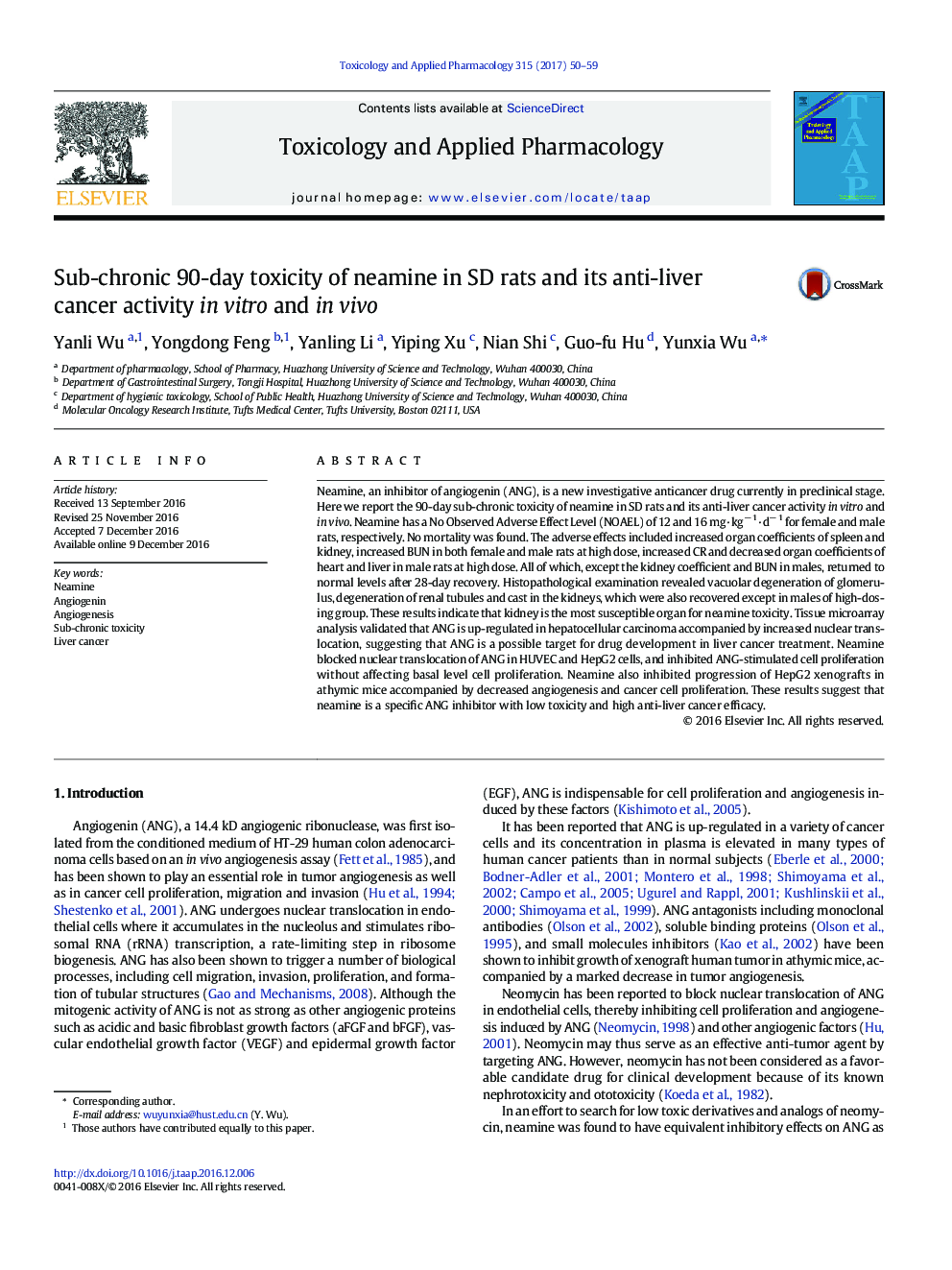| Article ID | Journal | Published Year | Pages | File Type |
|---|---|---|---|---|
| 5558556 | Toxicology and Applied Pharmacology | 2017 | 10 Pages |
Abstract
Neamine, an inhibitor of angiogenin (ANG), is a new investigative anticancer drug currently in preclinical stage. Here we report the 90-day sub-chronic toxicity of neamine in SD rats and its anti-liver cancer activity in vitro and in vivo. Neamine has a No Observed Adverse Effect Level (NOAEL) of 12 and 16 mg·kgâ 1·dâ 1 for female and male rats, respectively. No mortality was found. The adverse effects included increased organ coefficients of spleen and kidney, increased BUN in both female and male rats at high dose, increased CR and decreased organ coefficients of heart and liver in male rats at high dose. All of which, except the kidney coefficient and BUN in males, returned to normal levels after 28-day recovery. Histopathological examination revealed vacuolar degeneration of glomerulus, degeneration of renal tubules and cast in the kidneys, which were also recovered except in males of high-dosing group. These results indicate that kidney is the most susceptible organ for neamine toxicity. Tissue microarray analysis validated that ANG is up-regulated in hepatocellular carcinoma accompanied by increased nuclear translocation, suggesting that ANG is a possible target for drug development in liver cancer treatment. Neamine blocked nuclear translocation of ANG in HUVEC and HepG2 cells, and inhibited ANG-stimulated cell proliferation without affecting basal level cell proliferation. Neamine also inhibited progression of HepG2 xenografts in athymic mice accompanied by decreased angiogenesis and cancer cell proliferation. These results suggest that neamine is a specific ANG inhibitor with low toxicity and high anti-liver cancer efficacy.
Related Topics
Life Sciences
Environmental Science
Health, Toxicology and Mutagenesis
Authors
Yanli Wu, Yongdong Feng, Yanling Li, Yiping Xu, Nian Shi, Guo-fu Hu, Yunxia Wu,
